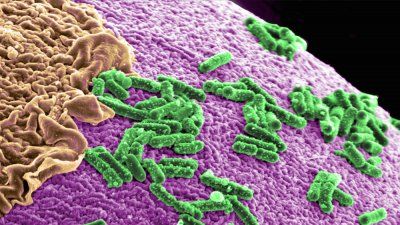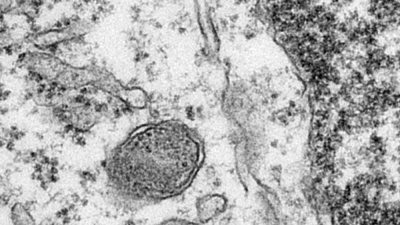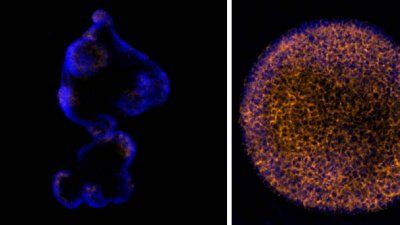Childhood Adversity Looms Large for Older Homeless Adults
A new UCSF report on an understudied population – older homeless adults – reveals that adverse childhood experiences have long-lasting effects.

University of California San Francisco
Give to UCSFA new UCSF report on an understudied population – older homeless adults – reveals that adverse childhood experiences have long-lasting effects.

The number of Americans diagnosed with concussions is growing, most significantly in adolescents. UCSF researchers recommend that adolescents be prioritized for ongoing work in concussion education, diagnosis, treatment and prevention.

An international team of researchers has developed a new opioid drug candidate that blocks pain without triggering the dangerous side effects of current prescription painkillers.

A new UCSF-led study concludes that the price of a promising new class of cholesterol-lowering drugs would need to be reduced by up to 70 percent to be cost-effective.

The abundance of a subtype of white blood cells in melanoma tumors can predict whether or not patients will respond to a form of cancer immunotherapy known as checkpoint blockade, according to a new study led by UCSF researchers and physicians.

UC San Francisco’s Clinical and Translational Science Institute (CTSI) has received $85 million over five years from the National Institutes of Health (NIH) to continue to provide training, research support and other services, and to launch new programs aimed at diversifying the patients in research and advancing precision medicine.

The first results from a large international study of patients taking metformin, the world’s most commonly used type 2 diabetes drug, reveal genetic differences among patients that may explain why some respond much better to the drug than others.

A new analysis of nationwide emergency department (ED) records led by UC San Francisco researchers has revealed that black patients seen for back or abdominal pain are roughly half as likely as white patients to be prescribed opioids in the ED or at discharge.

Canopy Health, the Bay Area-wide health care network being developed by UCSF Health, John Muir Health and three physician groups, has received its Knox-Keene license to operate in seven Bay Area counties.

UC San Francisco, one of the nation’s top three medical schools, is launching a new curriculum this month to train doctors in the skills needed to navigate and engineer the complex health care delivery and bioscience systems of the 21st Century.

A new study led by UCSF scientists shows that a bacterium commonly found in the human gut is overrepresented in patients with a rare, often disabling autoimmune disease known as neuromyelitis optica.

A new UCSF study shows that specialized brain cells in mice “predict” the hydrating effects of drinking, deactivating long before the liquids imbibed can actually change the composition of the bloodstream.

UCSF Medical Center has been named among the nation’s premier medical institutions for the 15th consecutive year, ranking as the seventh best hospital in the country in U.S. News & World Report’s 2016-2017 Best Hospitals survey.

In a surprising finding, researchers at UC San Francisco have discovered that the prevalence among Americans of chronic kidney disease (CKD), a condition that costs Medicare tens of billions of dollars to treat each year, hasn't increased since the early 2000s.

The Bay Area Accountable Care Network, which was established last year by UCSF Health and John Muir Health, has changed its name to Canopy Health and brought on new hospitals and physicians groups as it builds its network throughout the Bay Area.

One minute of exposure to second-hand smoke from marijuana diminishes blood vessel function to the same extent as tobacco, but the harmful cardiovascular effects last three times longer, according to a new study in rats led by UCSF researchers.

With two projects already underway to find new therapies for children with difficult-to-treat cancer and to help doctors diagnose hospitalized patients with acute infections, the California Initiative to Advance Precision Medicine (CIAPM) is announcing a new round of funding open to a wider range of applicants.

Infants who are exclusively breastfed early in life are more likely by age 4 or 5 to have longer telomeres, the protective bits of DNA that cap the ends of chromosomes in cells.

A serious childhood cancer takes advantage of a quality control mechanism that usually protects cells from stress-induced damage to propel tumor growth, according to a new study led by researchers at UC San Francisco and the University of Pittsburgh.

Reducing sugar consumption in obese children, rather than cutting calories or starch, or losing weight, leads to a sharp decline in triglycerides and a key protein called ApoC-III – two features that are associated with heart disease in adulthood.

Zika virus can infect numerous cell types in the human placenta and amniotic sac, according to researchers at UCSF and UC Berkeley who show in a new paper how the virus travels from a pregnant woman to her fetus.

A new UCSF study of top-rated mobile health apps showed that they offer little help to vulnerable patients – those who might benefit the most from these tools.

Using advanced imaging technology that allowed them to spy on interactions among cells in the lymph nodes of living mice, a research team led by UCSF scientists has identified a cell that is a key player in mounting the immune system’s defense against cancer.

Symptoms of infection with the Zika virus in Brazil may be masked by simultaneous infection with other mosquito-spread viruses common in the same region — such as dengue fever and chikungunya viruses — pointing to the need for comprehensive testing, according to a study led by a UCSF expert in DNA-based diagnostics in collaboration with Brazilian researchers.

UCSF will train medical residents and fellows in Lean management principles, as part of a broader institutional commitment to continuous quality improvement.

A new study led by UCSF researchers found that women whose first child was born at 37 to 38 weeks – so-called “early-term” birth – are two to three times more likely to experience preterm birth, defined as birth at a gestational age less than 37 weeks, when giving birth to a second child.

A previously unidentifiable type of low-grade inflammation may explain why common anti-inflammatory drugs such as aspirin have shown promise against some types of cancer – even when patients don’t display typical signs of inflammation.

School children drink more water if the traditional water fountain is replaced by a dispenser with cups, according to findings of a study led by researchers at UCSF.

Lending support to the idea that high-calorie diets, sedentariness and other aspects of the contemporary American lifestyle may be driving the obesity epidemic, UCSF researchers have found that people who carry greater genetic risk for obesity were more likely to have a higher body mass index if they were born later in the 20th century.

Taking patients’ risk of developing dental caries (“cavities”) into account can help dentists effectively tailor individual prevention and treatment efforts, according to a recent study led by researchers from the UCSF School of Dentistry.
